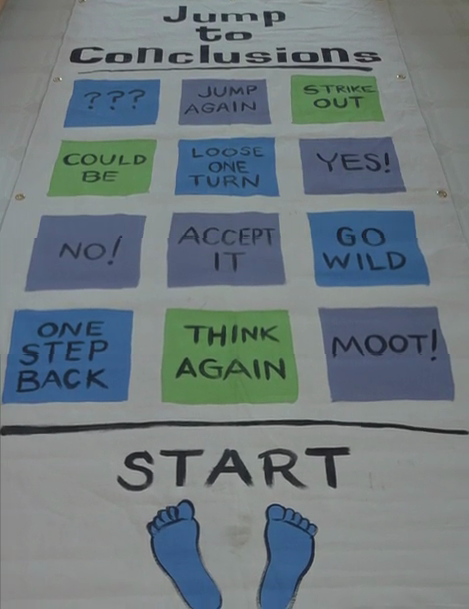C&R
"Wittgenstein's criterion of demarcation ... is verifyability, or deducibility from observation statements. But this criterion is too narrow (and too wide): it excludes from science practically everything that is ... characteristic of it (while failing ... to exclude astrology)."
(IV)
"Without waiting... for repetitions to ... impose regularities upon us, we actively try to impose regularities on the world... Without waiting for premises we jump to conclusions. These may have to be discarded later..."

(V)
'a hungry animal divides the environment into edible and inedible things.'
"Thus we are born with expectations; with 'knowledge' which, although not valid a priori, is psychologically or genetically a priori"
(VI)
"Our propensity to look out for regularities... leads to... dogmatic thinking... we expect regularities everywhere and attempt to find them even when there are none."
"...my ideas about induction originated in a conjecture about the evolution of Western polyphony. But you will be spared this story."
Damn!
(VII)
"Science must begin with myths, and with the criticism of myths."
"The method of trial and error is applied not only to Einstein but, in a more dogmatic fashion, by the amoeba also... the critical attitude may be described as the ... attempt to make our theories ... suffer in our stead."
KP didn't have the word 'meme'...
'a hungry animal divides the environment into edible and inedible things.'
"Thus we are born with expectations; with 'knowledge' which, although not valid a priori, is psychologically or genetically a priori"
(VI)
"Our propensity to look out for regularities... leads to... dogmatic thinking... we expect regularities everywhere and attempt to find them even when there are none."
"...my ideas about induction originated in a conjecture about the evolution of Western polyphony. But you will be spared this story."
Damn!
(VII)
"Science must begin with myths, and with the criticism of myths."
"The method of trial and error is applied not only to Einstein but, in a more dogmatic fashion, by the amoeba also... the critical attitude may be described as the ... attempt to make our theories ... suffer in our stead."
KP didn't have the word 'meme'...